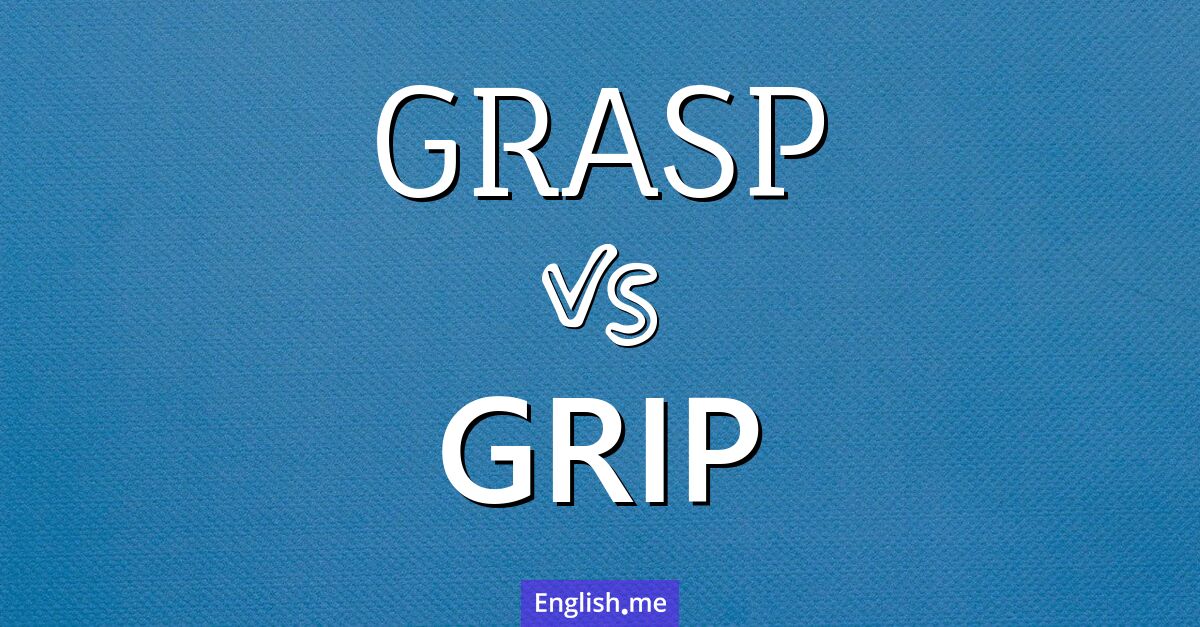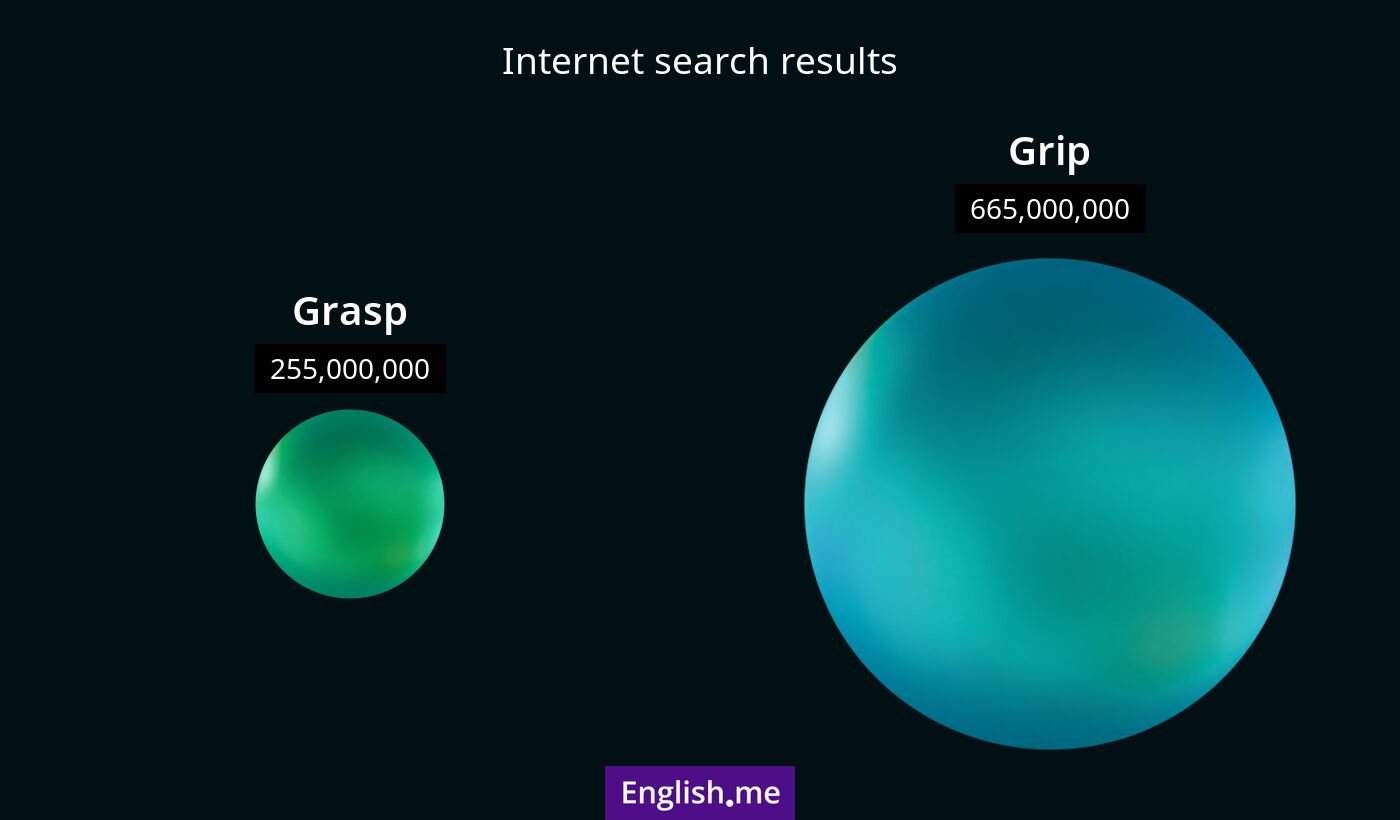"Grasp" vs. "grip": understanding the difference
Reviewed and edited by  Anwar Kareem 14/02/2025, 01:18
Anwar Kareem 14/02/2025, 01:18
English.me team member

 What is similar?
What is similar?
Both "grasp" and "grip" function as verbs and nouns, and they involve taking hold of something firmly with the hands.
 What is different?
What is different?
"Grasp" can also mean to understand something completely, whereas "grip" typically does not have this meaning. "Grip" can imply continuous control or influence, while "grasp" often refers to the initial act of seizing or understanding.
 Which one is more common?
Which one is more common?

 Examples of usage
Examples of usage
Grasp- She tried to grasp the rope but missed.
- It took him a while to grasp the complex theory.
- The child grasped his mother's hand tightly.
- He had to grip the handlebars firmly to stay balanced.
- The movie's suspenseful plot had the audience in its grip.
- The tires couldn't grip the wet road.

 English
English español
español française
française italiano
italiano deutsche
deutsche 日本語
日本語 polski
polski česky
česky svenska
svenska Türkçe
Türkçe Nederlands
Nederlands